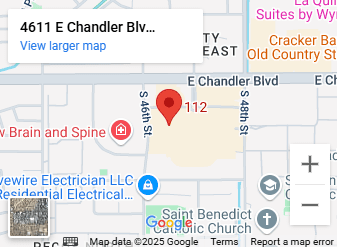In today’s dynamic business landscape, choosing the right business broker is a critical decision that can significantly impact a transaction’s success. Business owners and buyers alike must understand the nuances between local and national brokerage options. This article analyzes both alternatives regarding service scope, market reach, fees, confidentiality, personalized service, and deal-closing assistance. By comparing these approaches, entrepreneurs can decide which partner best aligns with their business profile and goals, especially in markets such as Arizona.
Each section uses current data, real-world examples, and actionable insights to guide business owners on optimizing cash flow, market value, and long-term asset growth during business sales or acquisitions.
What Are Local Business Brokerage Options and How Do They Work?
Local business brokerage options refer to services provided by brokers operating in a specific geographic area. These brokers serve small to medium-sized businesses and focus on understanding local market dynamics, competitive landscapes, and regional economic indicators. By leveraging intimate knowledge of local industries and buyer habits, they can deliver tailored, highly personalized service. In practice, local brokers help business owners prepare companies for sale through valuations, facilitating negotiations, and matching sellers with active regional buyers.
What Defines a Local Business Broker?
A local business broker focuses on a limited geographic area, building networks among local investors, industry specialists, and community leaders. Working one-on-one with business owners, they assess market conditions, conduct due diligence, and provide localized insights. Their hands-on experience in regional commerce allows them to understand consumer behavior, regulatory issues, and economic trends, all of which enhance the outcome of business sales and acquisitions.
How Do Local Brokers Support Business Sales and Acquisitions?
Local brokers provide end-to-end services finely tuned to the local economy. They begin with in-depth business valuations based on local market trends, then craft marketing materials and confidential memoranda to attract qualified buyers. Their deep local connections allow for discreet negotiations, on-site visits, and face-to-face meetings. Additionally, they offer insights into local competitors and regional funding options, which are essential for informed transactions in mergers and acquisitions.
What Industries and Business Types Do Local Brokers Typically Serve?
Local brokers serve a diverse range of industries including retail, restaurants, service providers, and manufacturing—all integral to regional economies. They typically work with family-owned businesses, small storefront chains, and local professional practices with stable cash flow and a strong customer base. They also assist service industries such as legal practices, healthcare providers, and construction companies by leveraging their experience in market value assessments and local consumer trends. Understanding local regulations and tax implications enables them to offer focused advice and negotiation strategies.
How Does Local Market Knowledge Benefit Buyers and Sellers?
Local market knowledge is invaluable. Sellers receive more accurate valuations based on local economic indicators and competitive positioning, while buyers benefit from insights into untapped market niches and an area’s growth potential. The personalized approach of local brokers often leads to faster deal cycles and increased satisfaction. Their awareness of emerging industries and shifts in consumer behavior minimizes risks and supports more informed acquisitions or sales decisions.
What Are National Business Brokerage Options and Their Key Features?
National business brokerage options include brokers and firms whose services extend beyond a single region. They leverage large-scale networks, extensive databases, and a wide range of resources to serve businesses operating on a national or international scale. Their strength lies in accessing a broader pool of potential buyers and investors, which increases the chances of a high-quality transaction. Advanced technology underpins their operations, enabling data-driven market analysis, nationwide marketing campaigns, and streamlined negotiation processes essential for cross-regional transactions.
How Do National Business Brokers Operate Across Regions?
National brokers operate by establishing networks of offices, agents, and partner organizations throughout the country. A centralized headquarters coordinates marketing strategies and data collection, while local representatives handle in-person negotiations and due diligence. They use sophisticated tools such as customer relationship management systems and digital marketing platforms to integrate market trends from many states. This cohesive operational model ensures transparency and efficiency regardless of geographic boundaries.
What Services Do National Brokers Provide for Business Transactions?
National brokers offer comprehensive services that include business valuations, marketing strategy development, and creation of detailed confidential memoranda for potential buyers. They facilitate due diligence, negotiate offers, and help navigate complex legal and regulatory requirements across states. Often, they also provide post-transaction support like transition management and integration planning. Their technological integration speeds up transactions and makes them ideal for larger businesses with multi-layered operations.
Which Industries and Business Sizes Are Best Suited for National Brokers?
National brokers are best suited for large businesses and mid-sized enterprises that require a broad market reach and manage complex transactions. Industries such as manufacturing, technology, healthcare, and national retail chains, which involve significant capital investment and multiple revenue streams, benefit from their extensive networks. They are particularly valuable for buyers interested in high-growth companies or established brands with a nationwide presence, thanks to their expertise in complex financial structures and regulatory compliance.
How Does a National Broker’s Network Impact Deal Opportunities?
The network of a national broker significantly broadens deal opportunities. It connects sellers with a diverse group of buyers, including institutional investors, private equity firms, and strategic buyers. This increased exposure can drive up valuations and reduce transaction time. Moreover, their ability to facilitate cross-border transactions and competitive bidding, combined with comprehensive market intelligence, refines their negotiation strategies and leads to superior advisory services.
What Are the Main Differences Between Local and National Business Brokers?
Understanding the differences between local and national business brokers is crucial for choosing the right partner. Local brokers offer specialized, region-specific insights and personalized service; national brokers provide broader exposure, extensive buyer networks, and advanced technological support. These differences affect market reach, fee structures, confidentiality protocols, and overall client support, helping business owners decide which model fits their strategic goals, available resources, and transaction complexity.
How Do Local and National Brokers Differ in Market Reach?
Local brokers operate within a specific area, offering personalized service and detailed market insights that benefit small businesses. National brokers, by contrast, access a vast market that spans multiple states and regions. While the local approach yields in-depth, tailored advice, the national approach gathers a diverse buyer pool, potentially resulting in higher sale prices despite offering less hyper-local detail.
What Are the Differences in Fees and Commission Structures?
Fee structures also differ. Local brokers tend to offer flexible and often lower commissions based on personal service and local factors, typically negotiated on a case-by-case basis. National brokers, however, use standardized fee structures that account for broader marketing and higher operational costs. While national fees might be higher, the additional services and market exposure they provide can justify the expense.
How Does Confidentiality Vary Between Local and National Brokers?
Confidentiality practices vary notably. Local brokers rely on personal relationships and community trust to manage sensitive information discreetly. In contrast, national brokers deal with larger, more complex deals and use secure data rooms, robust non-disclosure agreements, and digital encryption to maintain confidentiality. Although both prioritize privacy, national brokers use systematic, technology-driven approaches, while local brokers benefit from a culture of personal discretion.
What Are the Differences in Personalized Service and Client Support?
Local brokers often provide highly personalized service with hands-on attention, customized marketing, and direct negotiations, all of which build strong client relationships. National brokers, due to the high volume of their transactions, may offer less individual attention and rely on standardized systems. The trade-off is between personal attention and efficiency with broader market reach.
How to Choose Between Local and National Business Brokerage Options?
The choice between local and national brokers depends on various factors including business size, industry, and specific transaction goals. Decision-makers should align their choice with long-term strategies, desired sale price, and confidentiality needs. Evaluating your business profile, the level of personalized service required, and the potential benefits of a larger buyer network will help identify the best match.
What Factors Should Business Owners Consider When Selecting a Broker?
Key factors include the broker’s experience, reputation, and track record in your industry. Look for testimonials and case studies that reflect successful transactions. Communication style and personalized service are also important; a broker who understands your market value, cash flow, and unique business attributes is more likely to provide tailored advice. Transparent fee structures and robust technological support, such as secure online tracking systems, are essential for ensuring smooth transactions and confidentiality.
How Do Business Size and Industry Influence the Choice?
Smaller, locally focused businesses benefit most from brokers with in-depth regional knowledge and personalized service. Larger companies or those operating nationally may prefer the broad reach and complex transaction management offered by national brokers. Industries like healthcare, technology, and manufacturing are well-suited to the national approach due to their wide geographic customer base and complex financial structures.
When Is a Local Broker More Advantageous Than a National One?
Local brokers excel when intimate market knowledge and a personalized service model are necessary. For businesses deeply embedded in local consumer trends or those with a strong regional identity, local brokers provide a more discreet and flexible service. Their ability to forge close buyer relationships can lead to faster, more efficient deals with customized fee arrangements.
When Should Sellers or Buyers Prefer National Brokerage Services?
National brokerage services are preferable when a business’s operations span multiple states or when the transaction requires access to a larger pool of investors. Industries with high growth potential or those targeting institutional investors benefit from the extensive networks and standardized processes of national brokers. Their ability to conduct wide-reaching marketing campaigns and data-driven analysis can drive higher competitive bids and potentially result in a higher sale price.
Navigating Local vs. National Business Brokerage Services
Both local and national brokers have unique benefits and challenges. Local brokers provide personalized service and deep regional insights, while national brokers offer broader market exposure and efficiency through standardized practices and advanced technology. Business owners must weigh these pros and cons against their strategic goals, cash flow requirements, and desired transaction outcomes.
What Are the Advantages of Working With Local Brokers?
Advantages of local brokers include personalized service, tailored marketing strategies, and intimate knowledge of local market conditions that can lead to more accurate valuations. Their strong community connections often result in pre-qualified, interested buyers and more flexible commission arrangements. The emphasis on discretion and personal negotiation can be particularly beneficial for sensitive transactions.
What Challenges Might Arise With Local Brokerage?
The main challenge for local brokers is their limited market reach, which can result in fewer potential buyers and less competitive bidding. They may also have fewer technological resources compared to national firms, sometimes resulting in less efficient marketing and data analysis. Over-reliance on local networks can be a drawback when a broader market is necessary.
What Benefits Do National Brokers Offer to Clients?
National brokers offer broad market access, advanced technological platforms for data analysis, and standardized processes that ensure compliance and efficiency. Their extensive networks can lead to higher competitive bids and more lucrative deals. They also provide robust support in navigating complex legal and regulatory environments, which is advantageous for larger transactions.
What Limitations or Risks Exist With National Brokerage?
Risks with national brokers include potentially less personalized attention due to high transaction volumes and standardized processes that might overlook unique local market factors. Higher commission rates and the challenge of maintaining confidentiality across a large network are also concerns. Business owners must consider whether the benefits of broader exposure outweigh these potential drawbacks.
How Do Deal Negotiation and Closing Assistance Differ Between Local and National Brokers?
Deal negotiation and closing are critical stages in a transaction, and local and national brokers differ in their approaches. Local brokers use personalized, relationship-based negotiation strategies, while national brokers employ data-driven, standardized closing procedures that streamline cross-regional deals.
What Negotiation Strategies Do Local Brokers Typically Use?
Local brokers rely on personal relationships and a deep understanding of regional market dynamics when negotiating deals. They perform detailed assessments of cash flow and market share, using local trust and testimonials to facilitate flexible, adaptive negotiations. This personalized approach often results in deals that match seller expectations closely.
How Do National Brokers Handle Complex Deal Negotiations?
National brokers use a combination of advanced data analytics and standardized protocols to handle negotiations. They gather market insights from multiple regions to inform their strategy, creating competitive bidding environments with professional negotiation teams and digital platforms. This systematic approach ensures efficiency and consistency across complex, multilayered transactions.
What Closing Assistance Services Are Offered by Local Brokers?
Local brokers provide hands-on support during the final stages of a transaction. They coordinate due diligence, organize on-site inspections, and facilitate final negotiations with direct involvement from legal and financial advisors. This meticulous approach ensures compliance with local regulations and smooth transitions for small business owners.
How Do National Brokers Streamline Closing Across Multiple Regions?
National brokers utilize centralized systems and digital platforms to streamline the closing process. They employ project management tools to handle electronic document signing, virtual due diligence sessions, and coordinated communications across different jurisdictions. Their secure online data rooms facilitate real-time collaboration, reducing delays and miscommunications during multifaceted transactions.
What Industry Associations and Credentials Support Local and National Business Brokers?
Industry associations and professional credentials establish credibility and trust for both local and national brokers. Certifications from organizations such as the International Business Brokers Association (IBBA) and M&A Source reassure clients that brokers adhere to strict ethical and professional standards. These affiliations are essential for maintaining high-quality service in a competitive marketplace.
Which Professional Organizations Certify Local Business Brokers?
Local brokers typically obtain certification from the IBBA and regional chambers of commerce. These organizations require rigorous training in business valuation, marketing, and negotiation. Such certifications signal a broker’s commitment to ethical practices and continuous professional development, enhancing their credibility within the community.
How Do National Brokers Maintain Industry Standards and Compliance?
National brokers maintain standards by joining organizations such as the M&A Source and complying with stringent federal and international guidelines. They regularly participate in seminars and advanced certification programs to stay updated on market developments and legal requirements. Leveraging centralized compliance systems, they ensure consistent service quality across all regions.
Why Are Credentials Important When Choosing a Business Broker?
Credentials provide independent verification of a broker’s expertise and ethical standards. Certifications from respected bodies such as the IBBA or M&A Source indicate that the broker is well-trained in handling valuation, negotiation, and confidentiality. These credentials help business owners identify reliable brokers who can facilitate smoother transactions and generate better deal outcomes.
Frequently Asked Questions
Q: What is the primary difference between local and national business brokers?
A: Local brokers focus on a specific geographic area and offer personalized, community-based services, while national brokers operate across multiple regions with extensive networks and standardized procedures for more complex transactions.
Q: How do commissionstructures typically differ between local and national brokers?
A: Local brokers often negotiate flexible, potentially lower commission rates based on personal service, whereas national brokers usually employ standardized fee structures that may be higher due to broader marketing and advanced technology systems.
Q: Can a business benefit from using both local and national brokers simultaneously?
A: Yes, engaging both can provide detailed regional insights along with broader market exposure, maximizing competitive bidding and overall transaction value, though careful coordination is required.
Q: How important are professional credentials when selecting a business broker?
A: They are very important as they serve as evidence of expertise, ethical standards, and commitment to professional development. Certifications from organizations like the IBBA or M&A Source enhance a broker’s credibility.
Q: What factors should influence the decision to choose a local versus a national broker?
A: Consider business size, market presence, personalized service needs, buyer pool geography, fee structures, and desired confidentiality. Local brokers excel in personalized service; national brokers provide extensive market reach and technological support.
Q: How do brokers ensure confidentiality during transactions?
A: They use non-disclosure agreements, secure online data rooms, and careful handling of sensitive information. Local brokers rely on personal discretion, while national brokers use advanced technology.
Q: Are there significant risks when working with national brokers compared to local brokers?
A: National brokers, despite their broad market exposure, might offer less personalized attention and charge higher commissions. Their larger networks can make confidentiality more challenging, so business owners must weigh these factors carefully.
Final Thoughts
In summary, the choice between local and national business brokerage options depends on balancing personalized, region-specific support with the advantages of a broader network and advanced technologies. Local brokers offer detailed market insights and hands-on service ideal for small to mid-sized businesses, while national brokers provide extensive market reach and standardized processes suited for larger enterprises. Business owners should assess their company’s size, industry, and transaction goals carefully to select the broker that best supports a smooth transaction process, maximizes deal value, and meets their strategic objectives in the complex world of business sales and acquisitions.




